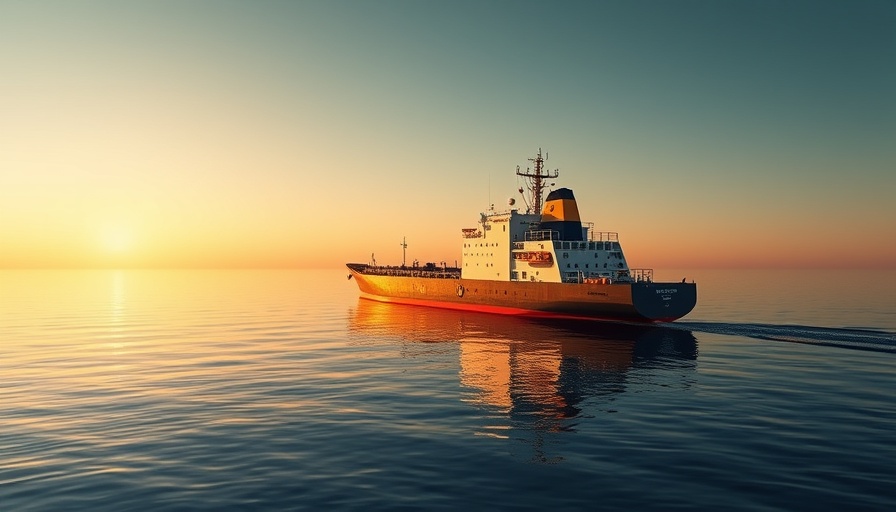
Hydrogen-Powered Advancement in Shipping: A New Era Begins
In a significant milestone for maritime transportation, Bureau Veritas Marine & Offshore (BV) has partnered with Turkey’s Gelibolu Shipyard and Germany’s eCap Marine to classify two hydrogen-powered general cargo vessels. These vessels are being built for the Norwegian shipowner Møre Sjø AS, aiming to revolutionize the way bulk cargo is transported while significantly reducing carbon emissions.
Innovative Design with Environmental Impact
The vessels, known as NDAS EcoFlex 4.0K, will be powered by hydrogen fuel cells operating on compressed hydrogen. With a length of 88.7 meters and a gross tonnage of 3,750, these vessels boast a high-pressure hydrogen power system alongside a battery pack and electric propulsion. Their design reflects a commitment to environmental mandates, ensuring they meet the HYDROGENFUEL-PREPARED notation upon delivery.
In addition to hydrogen propulsion, the ships will be equipped with a series of advanced operational notations, including Cyber Resilient, Unrestricted Navigation, and In-Water Survey, enhancing their safety and operational flexibility. Møre Sjø aims to position itself as a leader in zero-emission shipping for coastal freight, leveraging green technology to stay competitive in a changing market.
The Role of Classification Societies in Safety and Innovation
Bureau Veritas plays a critical role in ensuring that these innovative systems are safe and reliable. As Matthieu de Tugny, Executive VP at Bureau Veritas, articulated, this project signifies a crucial step toward embracing hydrogen as a viable alternative fuel source in general cargo shipping. The collaboration among various stakeholders, including shipbuilders and technology providers, reflects a collective commitment to advancing sustainable practices in the maritime industry.
Parallel Developments in the Hydrogen Shipping Sector
Simultaneously, projects like NIM's H2ESTIA aim to develop the world’s first general cargo ship powered by liquid hydrogen. This initiative, led by the Dutch Innovation Company and supported by multiple maritime and tech firms, emphasizes the swift evolution of hydrogen technology in shipping. Such parallel advancements showcase a robust movement toward zero-emission operations, addressing challenges like risk management, crew training, and safe hydrogen handling and bunkering.
The Future of Shipping: A Sustainable Perspective
The shift to hydrogen and other alternative fuels in shipping is not just a trend but a necessity in combating climate change. As companies like Møre Sjø and Gelibolu Shipyard venture into this territory, they reflect the broader maritime industry's responsibility to reduce its carbon footprint. These innovations offer profound implications for the shipping industry, making sustainability a pivotal focus for the future.
Investing in such technologies not only promotes eco-friendliness but also positions companies favorably within a market that increasingly values environmental stewardship. It is evident that the future of shipping lies in integrating technology with sustainability, a combination that holds the potential to redefine the industry.
Conclusion: Embracing Change for a Greener Future
The introduction of hydrogen-powered vessels marks a significant leap in the maritime sector, aligning with global efforts for cleaner and more sustainable logistics. By embracing such transformative technologies, the industry can navigate toward a future that prioritizes both efficiency and environmental responsibility. As stakeholders continue to collaborate and innovate, the path to zero-emission shipping becomes more feasible, heralding a new chapter in maritime operations.
 Add Row
Add Row  Add
Add 




Write A Comment